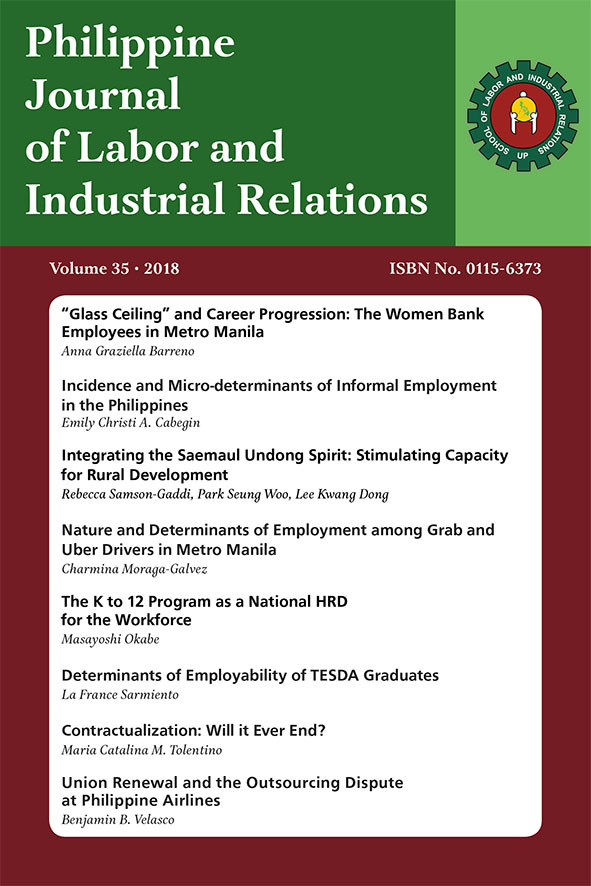The K to 12 Program as a National HRD for the Workforce
Abstract
The Philippines implemented the K to 12 Program, a comprehensive reform of its basic education, on June 8, 2013, following the approval of the Enhanced Basic Education Act of 2013. Through this reform, the Philippines is catching up with global standards in secondary education and is attaching a high value to kindergarten. The structure, curricula and philosophy of the education system have been undergoing reform and improvement, with key points as “preparation” for higher education, “eligibility” for entering domestic and overseas higher educational institutions and immediate “employability” upon graduating, all leading toward a “holistically developed Filipino” and also contributing to national human resource development (HRD). This paper summarizes this educational policy and some remaining problems it has faced. The author particularly wants to point out that the policy needs to address two kinds of demand-side approaches: one, to promote sustainable schooling of households with economic hindrances; and two, to address workplace demands by providing Filipino youth with new academic and vocational knowledge and skills.


